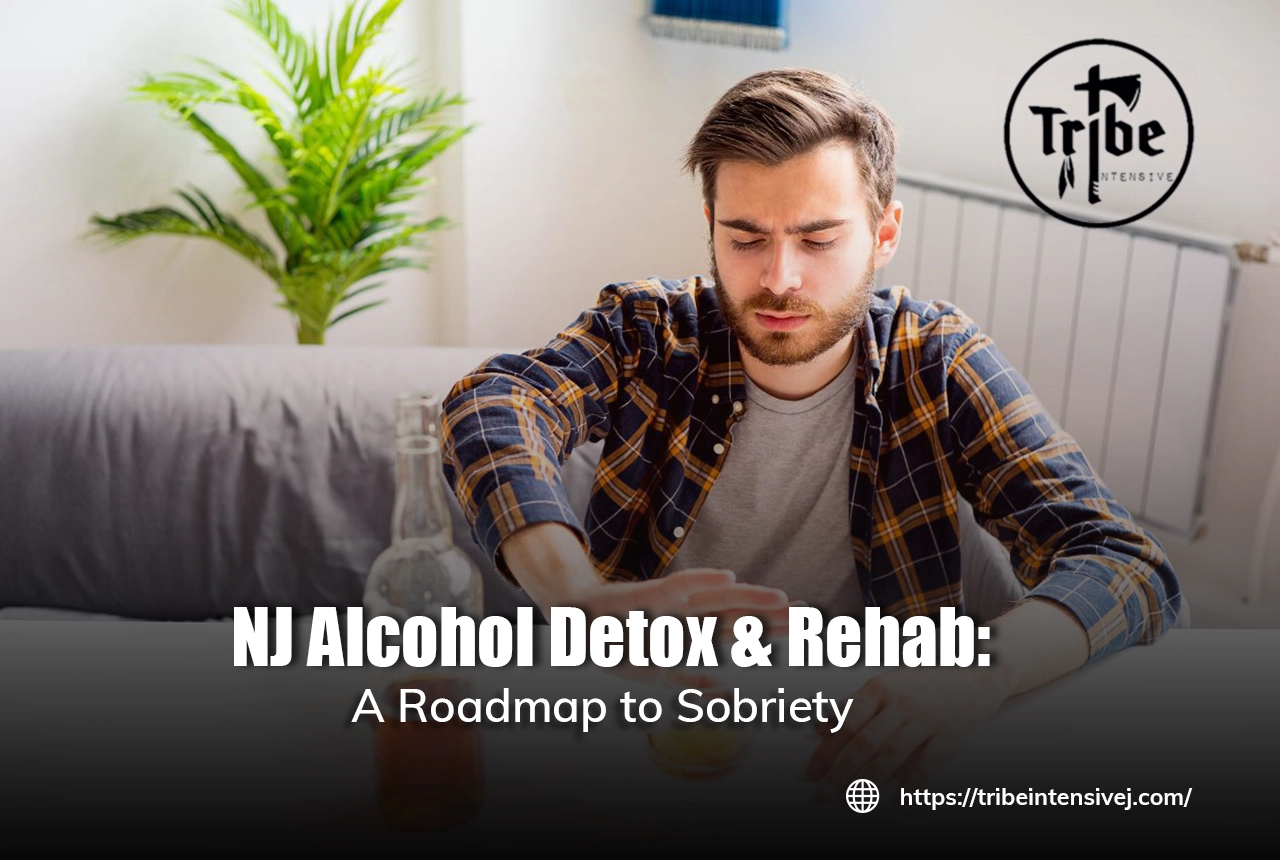Alcohol addiction is a serious and complex disease that affects individuals and families across New Jersey. For those struggling with alcohol dependency, seeking professional help through alcohol detox and rehab programs can be life-changing. This comprehensive guide will walk you through the alcohol detox process, rehab options in NJ, and what to expect during recovery.
Understanding Alcohol Addiction
Alcohol addiction, also known as alcohol use disorder (AUD), is a condition where an individual is unable to control or stop drinking despite negative consequences. Some common signs of alcohol addiction include:
- Drinking in larger amounts or for longer than intended
- Experiencing withdrawal symptoms when not drinking
- Developing a high tolerance, needing more alcohol to feel the effects
- Neglecting responsibilities due to drinking
- Attempting to quit but failing multiple times
If you or a loved one are experiencing these symptoms, seeking professional detox and rehabilitation is crucial.
The Importance of Alcohol Detox
Before starting a rehab program, detoxification (detox) is the first step in the recovery process. Alcohol detox helps the body eliminate alcohol while managing withdrawal symptoms. Detox should always be done under medical supervision to ensure safety, as alcohol withdrawal can be severe and, in some cases, life-threatening.
Alcohol Withdrawal Symptoms
Withdrawal symptoms can vary in intensity, depending on the severity of alcohol dependence. Common symptoms include:
- Anxiety and restlessness
- Nausea and vomiting
- Sweating and chills
- Insomnia and nightmares
- Tremors and shakiness
- Increased heart rate and blood pressure
In severe cases, individuals may experience delirium tremens (DTs), which can cause confusion, hallucinations, seizures, and even death. Medical detox programs in NJ offer medication-assisted treatment (MAT) to ease withdrawal symptoms and ensure a safer detox process.
Alcohol Rehab Options in New Jersey
Once detox is complete, individuals transition into a rehab program tailored to their needs. There are several types of alcohol rehab programs in NJ:
1. Inpatient Rehab
Inpatient rehab, also known as residential treatment, requires individuals to stay at a rehab facility for an extended period (usually 30 to 90 days). These programs provide structured treatment, 24/7 medical care, and a supportive environment for recovery.
Benefits of Inpatient Rehab:
- Constant medical and emotional support
- No access to alcohol, reducing the risk of relapse
- Intensive therapy, including individual and group counseling
- A safe, structured setting to focus entirely on recovery
Who Should Consider Inpatient Rehab?
- Individuals with severe alcohol addiction
- Those with a history of relapse
- People without a supportive home environment
2. Outpatient Rehab
Outpatient programs allow individuals to continue living at home while attending scheduled treatment sessions. There are different levels of outpatient rehab, including:
- Partial Hospitalization Programs (PHP): Intensive treatment with daily sessions
- Intensive Outpatient Programs (IOP): Therapy multiple times a week
- Standard Outpatient Programs (OP): Weekly therapy sessions
Benefits of Outpatient Rehab:
- More flexibility for work and family responsibilities
- Lower costs compared to inpatient treatment
- Continued support while applying recovery skills in daily life
Who Should Consider Outpatient Rehab?
- Those with a strong support system at home
- Individuals with mild to moderate alcohol addiction
- People transitioning from inpatient rehab
3. Medication-Assisted Treatment (MAT)
Medication-assisted treatment (MAT) is often integrated into both inpatient and outpatient rehab programs. FDA-approved medications such as naltrexone, acamprosate, and disulfiram help reduce cravings and prevent relapse.
4. Holistic and Alternative Therapies
Many rehab centers in NJ incorporate holistic treatments alongside traditional therapy. These may include:
- Yoga and meditation
- Art and music therapy
- Exercise and nutrition programs
- Acupuncture and massage therapy
Therapy and Counseling in Alcohol Rehab
A critical part of alcohol rehab is therapy and counseling, which help individuals understand the root causes of addiction and develop healthier coping mechanisms.
Common Therapy Approaches:
- Cognitive Behavioral Therapy (CBT): Helps identify and change negative thought patterns
- Dialectical Behavior Therapy (DBT): Focuses on emotional regulation and coping strategies
- Motivational Interviewing (MI): Encourages self-motivation for recovery
- Group Therapy: Provides peer support and shared experiences
- Family Therapy: Helps rebuild relationships and create a strong support system
Life After Rehab: Maintaining Sobriety
Completing rehab is a major achievement, but recovery is an ongoing journey. Many individuals benefit from aftercare programs that provide continued support and relapse prevention strategies.
Aftercare and Support Groups
- 12-Step Programs (AA – Alcoholics Anonymous): Offers peer support and accountability
- Sober Living Homes: Structured environments for transitioning back into everyday life
- Therapy and Counseling: Continued individual or group therapy sessions
- Alumni Programs: Many rehab centers offer long-term support for graduates
Finding the Right Alcohol Rehab in NJ
Choosing the right rehab facility is crucial for successful recovery. Here are some key factors to consider:
- Accreditation and Licensing: Ensure the rehab center is accredited by organizations like The Joint Commission or CARF.
- Customized Treatment Plans: Look for centers that offer personalized treatment tailored to individual needs.
- Qualified Staff: The facility should have licensed doctors, therapists, and addiction specialists.
- Insurance and Payment Options: Check if the rehab center accepts your insurance or offers financing options.
- Reviews and Testimonials: Reading reviews from past patients can provide insight into the quality of care.
Taking the First Step Toward Recovery
If you or someone you love is struggling with alcohol addiction, seeking professional help is the first step toward a healthier, sober life. NJ offers a variety of detox and rehab programs designed to meet different needs and circumstances.
Don’t wait until it’s too late—reach out to a trusted alcohol rehab center in NJ today and start your journey toward recovery.
Final Thoughts
Recovery from alcohol addiction is possible with the right support, treatment, and dedication. Whether you choose inpatient rehab, outpatient treatment, or a combination of both, the most important thing is taking that first step. You are not alone in this journey—help is available.

